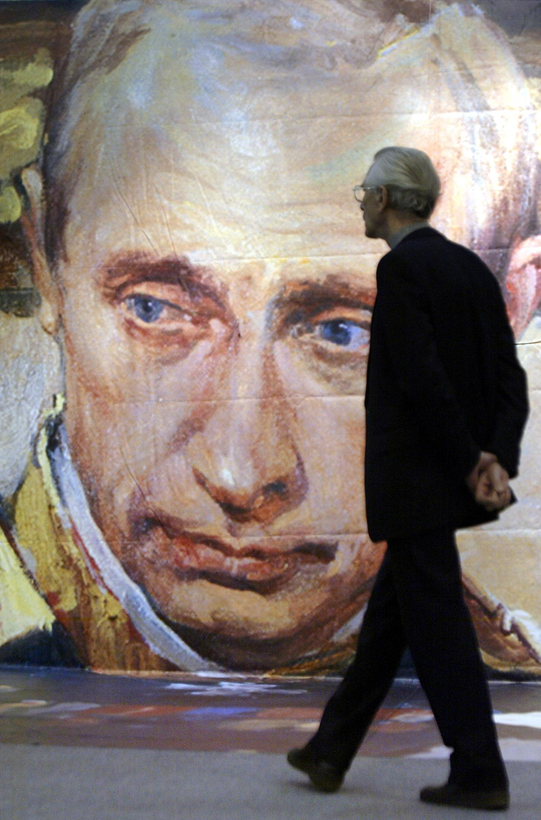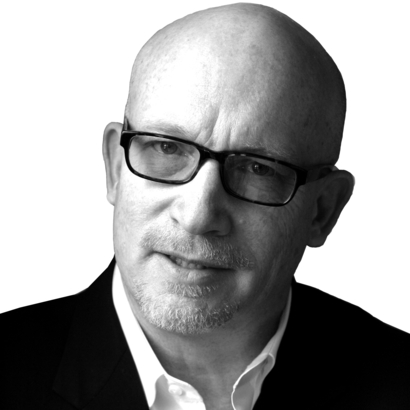Given some of the hysterical writing about Russia over the past few years, one might expect a visit to Moscow to be like the experience of being kidnapped and dropped on Mansu Hill in Pyongyang: brigades of soldiers goose-stepping down clean wide boulevards surrounded by authoritarian iconography.
But New Yorker journalist Joshua Yaffa, the author of an excellent book on Putin’s Russia, Between Two Fires, would have you know that Moscow can be a wonderful place. While the cliché is true, writes Yaffa, that “in Moscow … the streets were designed not for people but for tanks,” at the same time the city vibrates with “the energy of wholesale reinvention.” Describing his many recent visits to the city, Yaffa recalls that “the people I met were hungry, curious, adventurous, unbound by rules and expectations … ”
That sure doesn’t sound like Putin’s gulag, where sewers run red with the blood of dissidents and disloyalty is punished with a perfume bottle of Novichok.
Yet Yaffa also charts an undercurrent, a “sorrow and weight to the place; the city [which] had been the epicenter of a terrible failed experiment.” This embrace of contradictions is what makes Between Two Fires such a poignant and poetic book. It celebrates the vitality of the Russian people even as it explores the compromises and accommodations that they must make to a state that is at once stable and capricious; flexible and unyielding; blunt yet fueled by a mercurial mendacity that is promoted with a mischievous wink and nod, as if to say, We know you know we’re lying and isn’t that the fun of it all? Rather than rebel, contemporary Russians are left to chuckle cynically at the dark joke of Putin’s power: the ability to manufacture lies and parade them as truth. Yaffa sees it as a modern variation of the old sardonic slogan about the Soviet economy, “We pretend to work and they pretend to pay us.”
Bottle Half Full
Between Two Fires comprises a series of portraits of Russians who, in their own way, against all odds, try to make the best of a bad situation. One of the most colorful is Konstantin Ernst, the brilliant TV producer who oversees the programming on Channel One, the most powerful and propagandistic state-controlled network. In exchange for mounting gaudy spectacles glorifying Russia and Putin—to whom Ernst is unfailingly loyal—he has earned the right to program such American fare as Californication, House of Cards, and Fargo. (Full disclosure: According to Yaffa, Ernst rewarded himself on the night of his birthday by scheduling, on prime time, the first Russian showing of Gonzo, my 2008 documentary about Hunter S. Thompson.)
There are other rich characters in the book. In Chechnya, we meet Heda Saratova, a human-rights activist forced to pick and choose her causes. In Crimea, Yaffa introduces us to the brash lion hugger Oleg Zubkov, director of two zoos who, after Russia’s annexation, navigates a thicket of different political masters to try to fix the blackouts caused by nationalist saboteurs. With the onset of the first frost, Zubkov cadges generators to keep alive his constituency of tropical fish, iguanas, and alligators.
Rather than rebel, contemporary Russians are left to chuckle cynically at the dark joke of Putin’s power.
Yaffa also tells the tale of Elizaveta Glinka, known as Dr. Liza, a woman whose humanitarian trips to Syria and the war raging between Ukrainian forces and Russian-backed separatists in the Donbass raised awareness of civilian casualties and saved more than 500 children. Her willingness, for practical reasons, to ingratiate herself with Putin made her a tragic but quixotic figure. “Glinka was in the ironic position of relying on the state to help those who, in some sense, were victimized by that very same state … [but for her] the moral value of helping a person in need trumped how that help might be obtained.”
Inevitably, the colorful characters that Yaffa describes are caught “between two fires,” a Russian expression which refers to the “condition of being stuck in the middle of two opposing forces bigger than yourself.” On the one hand they are singed by Putin’s regime—call it “managed democracy” or “soft authoritarianism”—and on the other hand their souls are seared by the very lies, betrayals, and compromises that seem to offer the only path forward for those with pragmatic ambition or ideals.
Homo Sovieticus
The effort to understand this conundrum leads Yaffa to my favorite character—and perhaps the most important one in the book—a sociologist named Yuri Levada. During the Soviet era, Levada was a truly inquisitive academic, which meant that he spent most of his career under suspicion. But in the unraveling of the Communist state in the late 80s, he was permitted to study public opinion and the character of the Russian people. His focus was Homo Sovieticus: a new species, according to Levada, who did not trust or respect the state but could not live without it. “At once resourceful and passive,” says Yaffa, “untrusting and indifferent, Levada’s Soviet Man intuitively understood that it was easier—and ultimately more profitable—to play one’s own game within the system.”
Later, in the wake of Soviet collapse, the whirlwind of a Wild West free-market economy, and new press freedoms, Levada was surprised to see that Homo Sovieticus didn’t become extinct—he evolved. In 1999, the year Vladimir Putin came to power, Levada published a new essay called “The Wily Man,” which attempted to reckon with a capitalist variation on an older Soviet theme. “The Russian wily man, Levada wrote, ‘not only tolerates deception, but is willing to be deceived, and even … requires self-deception for the sake of his own self-preservation.’”
This was an eye-opening insight for me as I recalled my recent experience shooting a documentary in Russia. There I witnessed what Russians call “election theater,” a gaudy deception pretending that democracy exists even when everyone agrees it doesn’t. TV election coverage featured wild, screaming debates, punctuated by candidates throwing water at each other. While entertaining as W.W.E., the show did not include the two most essential characters. One was Vladimir Putin, the man who would be the designated winner. The other was the popular opposition candidate, Alexey Navalny, who was not permitted to run.
The Russian wily man “requires self-deception for the sake of his own self-preservation.”
In this election theater, water-throwing Ksenia Sobchak—a TV celebrity and daughter of Putin’s old boss, the former mayor of St. Petersburg—played the wily woman. She knew she wasn’t going to be winning—and was rumored to be funded by the Kremlin—but she gamely pretended that she had a chance. Navalny, in a desperate attempt to be wise rather than wily, did not boycott the election but called instead for a “strike”—his way of participating and not participating at the same time.
Yaffa notes that Navalny, who can get up to 10 million views on his YouTube channel, has been connecting in a powerful way with the discontented young people of Russia. Last year, in Moscow, when authorities refused to register opposition-minded candidates in local elections, Navalny called for protests resulting in huge demonstrations; a brutal government crackdown shocked the nation and briefly undermined the stability so carefully cultivated by Putin.
“Between two fires”: the “condition of being stuck in the middle of two opposing forces bigger than yourself.”
It’s tempting to think that revolution is coming right around the corner. But Yaffa notes that Putin’s crony capitalism—whose efficacy rises and falls with oil prices—still offers ambitious people a path to success as long as they are willing to flatter those in charge. His portrait of Putin’s Russia evokes a fashionable house where corruption seeps inexorably through odd shingles, leaving wily men and women to gather pots and pans to collect the water.
The character who ends the book is Danila Prilepa, a high-school student from Nefteyugansk, who boldly questions systemic corruption on a live Russian call-in show, produced by Ernst, called Direct Line with Vladimir Putin. By catching Putin flat-footed, Prilepa’s bold pushback made for a “rare moment of unscripted—uncomfortable even—humanity.” But when Yaffa travels to Siberia to follow up with Prilepa, his friends, and neighbors, Yaffa uncovers only uncertain discomfort with the way things are. One member of a motocross club confesses that he wanted to vote for Navalny, but, once he was banned from running, he decided to cast his lot with Putin. When Yaffa asks him how he could switch so effortlessly from “the figure who took on the system to the one who personified it,” the student shrugged and admitted that stability is more important than change. Prilepa, too, wanted success as much as change. It turns out that, as long as Putin stays in power, it still pays to be wily.
Alex Gibney is a filmmaker. His latest documentary, Citizen K, is in theaters now


